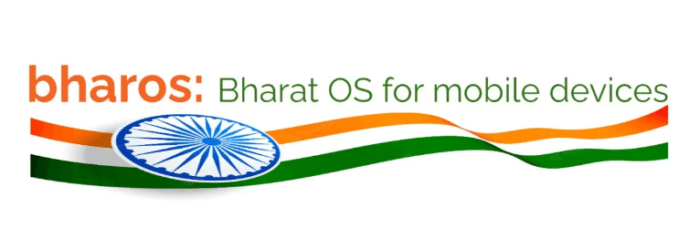A company funded by IIT Madras has created a mobile OS that promises to give customers a better secure experience.

BharOS, a new homegrown operating system recently introduced by IIT Madras, aims to provide a more private and secure mobile operating system. The 100 crore android users in India, who presently use smartphones dominated by the Android operating system controlled by foreign businesses, are believed to profit from this Indian operating system with a Linux kernel.
The rapidly growing Indian IT sector is intrigued by the new indigenously designed OS system, and the primary concern for everyone is if BharOS can compete with Google’s Android. Or what makes it different from and superior to either iOS or Android, or they will be able to compete in the market dominated by iOS and Android?
What exactly is BharOS?
BharOS is a strong and secure operating system built on the Linux kernel. A non-profit company called “JandK Operations Private Limited (JandKops)”, which was founded at IIT Madras, is the one who is creating it. “Any Linux distribution forked into an Android operating system. Early versions of Linux, which are essentially a derivation of the Linux kernel, have been utilized by us. BharOS has, however, undergone extensive customization, including adjustments to security protocols such as the root of trust and chain of trust “explained V Kamakoti, head of the “Indian Institute of Technology (IIT)” Madras, in a talk with Money Control.
Features-
1. BharOS is free of bloatware and default programmes, allowing users greater storage space.
2. Users aren’t compelled to utilize any default apps, thus they may use whatever app they choose.
3. Similar to Android, BharOS provides “Native Over The Air” (NOTA) upgrades, which means the software changes will be installed and
downloaded on the device automatically.
4. The new operating system will also have accessibility to Private App Store Services (PASS), which offers trusted apps from certain
organizations.
What distinguishes BharatOS from Android?
Technically speaking, BharOS and Android are comparable since both operating systems are based on the Linux kernel. The key distinction among both BharOS and Google’s Android is that BharOS doesn’t provide any Google services, whereas Android allows users to instal third-party apps. BharOS is comparable to Android in terms of characteristics but does not include any pre-installed applications.
Can anyone use BharOS?
Currently, BharOS is reserved for businesses with high privacy and security standards, because “whose users handle sensitive information that necessitates secret interactions on limited applications on mobiles.” The public has not yet officially received the updated OS.
People oppose the success of any system like BharOS: Ashwani Vaishnaw
The struggle begins here, the Minister of Electronics and IT claims, and we must be confident in creating a domestic mobile operating system since challenges will arise from all over the world. Even worse, he claimed that “people don’t want any solution like this to thrive,” perhaps referencing the dominant mobile operating system providers Apple and Google.
#WATCH There will be difficulties in this journey and there are many people around the world who will bring difficulties and will not want any such system to be successful…: Electronics and IT Minister Ashwini Vaishnaw on indigenous mobile operating system 'BharOS' https://t.co/9KZ48Fspn2 pic.twitter.com/RCgOTVdqno
— ANI (@ANI) January 24, 2023
















